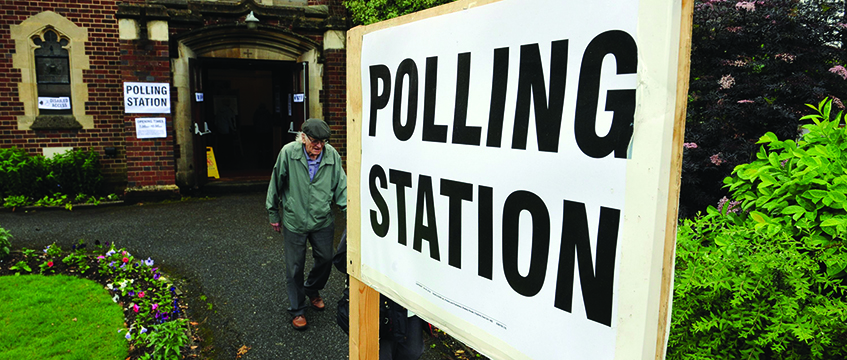We are just days away from the General Election and while the BPF is well placed and ready to work with whoever takes office on 9 June, to ensure we maintain real estate’s significant socio-economic contribution to the UK, now is an opportune moment to reflect on what the two main party manifestos mean for real estate, writes Melanie Leech, chief executive of the British Property Federation.
In the blue corner…
1. Brexit
The Conservatives’ “hard Brexit” continues, meaning membership of the single market is off the table. For a sector that underpins the UK’s trading activities, whether in goods or services, this raises significant questions. I have yet to meet the person who understands what “friction-free borders” means in practice or how it will be delivered. And, the property industry currently depends on access to skilled workers from the EU to deliver development. At a time when there is a critical need to do this at scale and speed to tackle our housing crisis, this approach must not needlessly leave our industry with a huge resource gap – which could take years to fill.
2. Housing
The commitment to build one million homes by 2020, with an additional 500,000 by 2022, might best be described as ambitious. On the upside, we welcomed the Housing White Paper’s vision of a more robust multi-tenure housing sector. Its proposed recognition of build-to-rent in national planning policy provided a very encouraging signal for the £50bn our industry has ready to invest in the sector. We now need to make sure the right planning framework and resources are in place to help hard-pressed local authorities to balance competing priorities and turn commitment into action.
3. Tax
A promise to simplify the tax system will always be popular with business – although note this is not the same as reducing the tax burden, which for real estate, possibly the most highly taxed industry on the planet, might have been an appropriate pledge. Maintaining the commitment to drop corporation tax will be widely welcomed by the companies of all sizes whose activities our industry supports. Let’s see how the commitment to simplification works out in practice – and hope that the Conservatives, if elected, work closely with us and other business sectors.
In the red corner…
1. Brexit
Labour’s pledge to scrap the existing Brexit White Paper and Great Repeal Bill risks taking us two steps back at a time when we are on the clock to move forward at speed. Uncertainty threatens investment and, if elected, Labour needs to give investors a vision that maintains confidence in their plans for the Brexit negotiations as quickly as possible. Their commitment to a network of regional trade and investment champions is interesting and the BPF is well placed to support such activity, building upon our successful partnership with the current government at MIPIM this year.
2. Housing
Labour’s manifesto is not quite as ambitious in its commitment to deliver a million homes over the next five years, instead it focuses to a greater extent on affordability. However, its commitment to delivering housing is clear in the proposal to create a dedicated department and secretary of state. Labour appears to be inching back towards the Lyons Review – no bad thing given the blueprint he established for housing supply.
Probably unsurprisingly, rent controls make an appearance. We will continue to make the case that evidence shows that rent controls are anathema to much-needed institutional investment into housing and fail to benefit tenants. However, there are policies in Labour’s manifesto on standards for build-to-rent that we would hope to be able to support once we know the detail.
3. Tax
A straight fight here – with Labour committing to increase corporation tax.
Creating a National Investment Bank, and regional development banks, should be a positive step to help finance smaller businesses and infrastructure projects across the country, particularly as we know that traditional lenders are now shying away from smaller projects. But, we need more detail on how this might deliver in practice – particularly if viability is currently preventing projects from getting off the ground.
Finally, an elephant which both parties have at least spotted in the room – with promises to review a business rates system which is fundamentally unfit for purpose. This is welcome – however, while the commitment looks stronger in the Conservative manifesto, a sceptic might think that they have already had ample opportunity to undertake such a review in the past seven years.
Overall, as in most elections, the campaigns seem light on firm evidence for how commitments will be delivered. Overhanging all of this, of course, is the potential Brexit Bill, which no-one really yet understands but will mean that whoever wins will face continuing tough tax and spending decisions. Our industry, and the £94bn it contributes to the UK economy each year, is here to help, given the right encouragement.
Read more election analysis and comment >>











